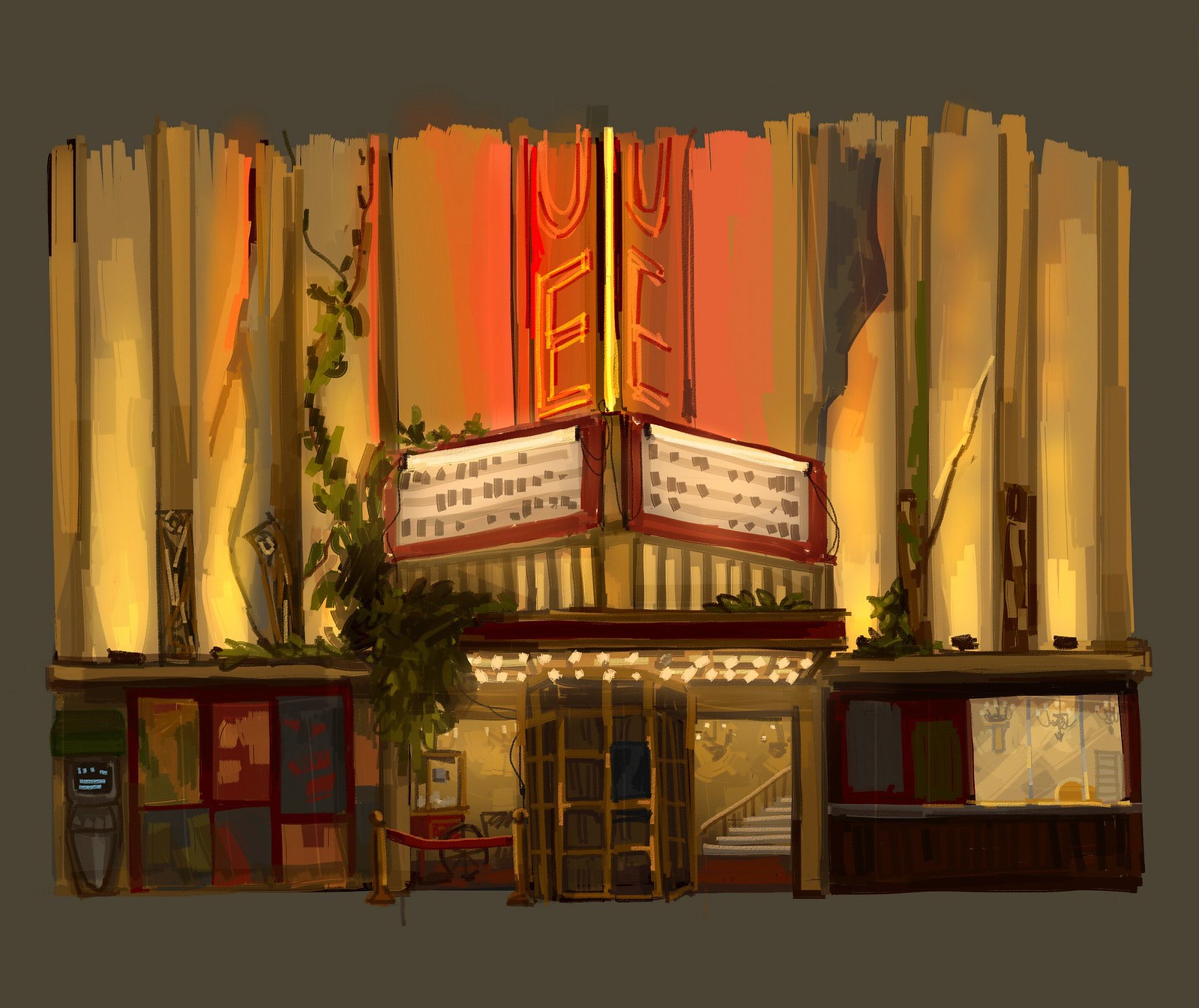
[ad_1]
Back in 2017, the game that would eventually become Backbone was entirely different: a stealth game in a science fiction setting. During a conference call brainstorming session, the team was interrupted by a crash that came from outside co-founder Nikita Danshin’s home in Vancouver. Raccoons had attacked his composting bin, so to scare them off, Nikita (also the game’s composer) picked up the loudest thing at hand — his trumpet. We were unable to stop laughing about how fun it would be to play as a raccoon strategically stealing people’s garbage, and after a few iterations, Backbone’s world of anthropomorphic animals was born.


Left: Character art for the sword-wilding Samson / Right: Final in-game appearance
Character designer and senior artist Kristina Dashevskaya worked up concepts for swearing, trench coat-wearing raccoon Howard Lotor. We instantly fell in love with this character, and the rest of the world building stemmed from there.
In this world, apes are on top — they are the architects and rulers of society, and they eventually make decisions on where everyone else sits. Lions and bears are slightly below, cats and dogs lower (but still in the upper class), raccoons and foxes are smack dab in the middle, and rodents like mice and rabbits are the working class. Just like in real life, these rules are often broken, but any deviation is looked down upon, while conformity is celebrated. Different neighborhoods are inhabited by clusters of species, so while exploring the world of Backbone, players might notice that subtle segregation.


Left: A sketch of the Granville location in Backbone / Right: The final in-game destination
Unlike boring humans, with anthropomorphic animals there are so many ways to tell a cohesive story through costume, facial features, tails, and coloring. Species each have a heavy connotation in Backbone’s lore, so every rat and lion comes with a set of inherent stereotypes that characters in the game believe. But apes and hamsters can be the same height and size, and their species is mostly an example of the social construct rather than a set list of biological features. Just like people, we all have different faces and bodies — but it’s the artificial order and economy and propaganda that decides where we’re placed on the social ladder.
While Backbone seems like a story about animals, it really is about the human condition and the beauty and pain of our common struggle. We don’t rely on biological determinism in our design and writing — even though the in-world characters do judge others based on their species. The animal factor helps distance ourselves enough to examine and deconstruct these real world biases about real people, but there is a very fragile balancing act of trying to never hit too close home, to not appropriate and to not diminish the real human experience.


Left: A sketch of the West End setting in Backbone / Right: Final-in game location
Howard Lotor was always supposed to be a raccoon, but throughout the development, we also realized that it’s a perfect choice for a player character. Raccoons are stuck in the middle — not upper class, not lower, they’re being looked down upon by everyone and struggle with their identity. Howard’s story is focused on his identity crisis and transformation, and his relatability is what made it work for us.
We’re happy to bring Howard and the world of Backbone to a wider player base by releasing the game on PS4 and PS5, as well as offering a total of nine languages across all platforms beginning October 28. Languages include English, Japanese, French, German, Russian, Simplified Chinese, Brazilian Portuguese, Polish, and Spanish, and we look forward to seeing how new players experience this deeply personal story across the globe.
[ad_2]





